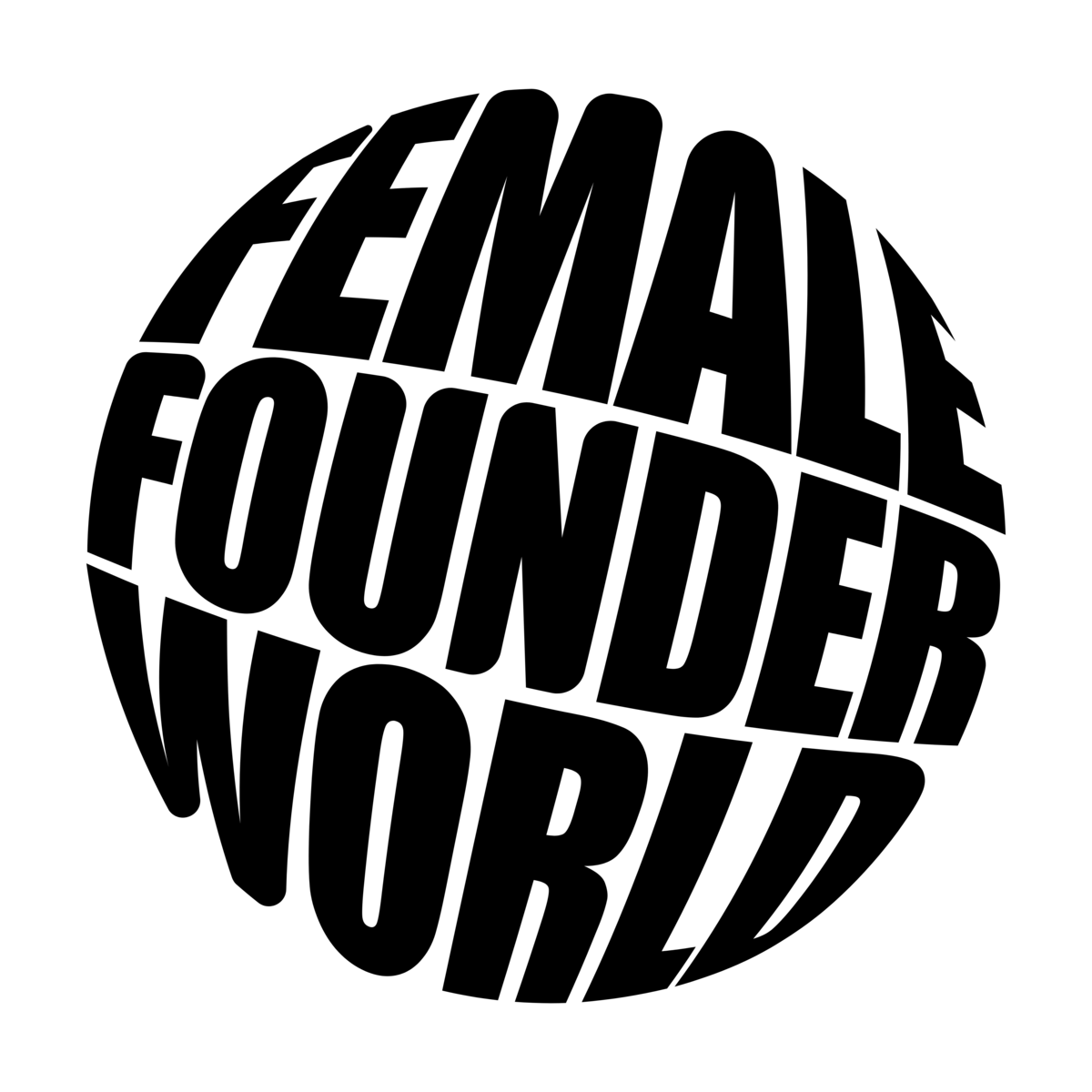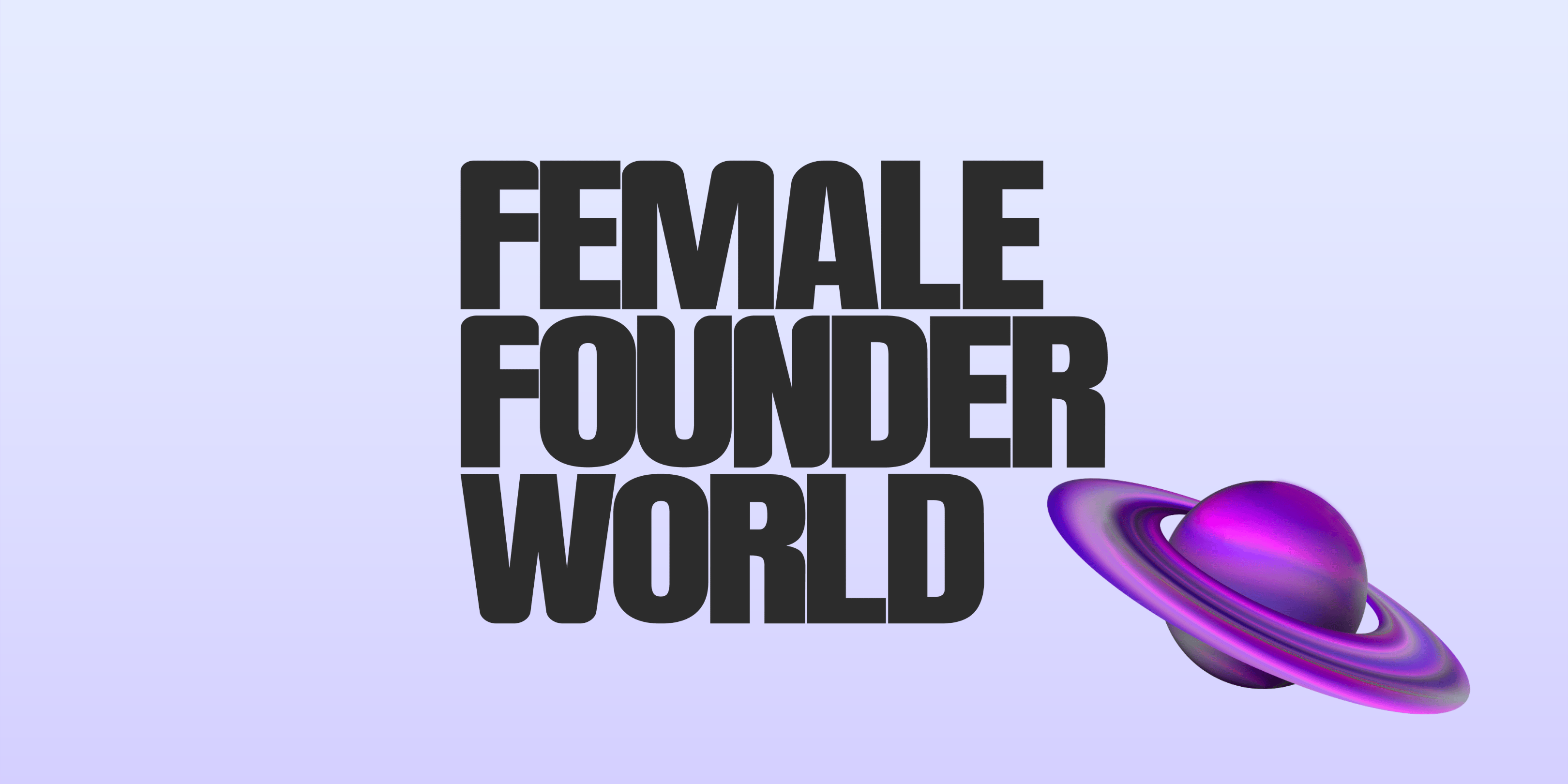
Hey, this is Female Founder World. We show what will help you to start and grow a consumer business.
If someone forwarded you this email, subscribe here.
In this week's email:
📓 Resource roundup
📙 How to create a deck that will score new stockists
💰 Let The Ca$h Flow: LitRituals' Finance diaries
☕️ What went down with Australia's influencer marketing laws last weekend
👀 Deets on August's blog refresh
💬 Lingo of the week: Category captain
🎧 On the podcast last week: Chillhouse, Odele Beauty, Luna Bay Booch
🖥 Replay: NFT Use Cases for Consumer Brands Workshop now available on demand
🗓 Coming up this week: Rachel Roff (Urban Skin RX), Mady Maio (Camber App and the Okay Sis podcast), Nadya Okamoto (August)
Read till the end for access to our on-demand workshop library. 🤫

📓 Resource roundup
The Power Forward Small Business Grant program is offering $25,000 grants to empower Black-owned small businesses in New England. 🔗 Tell me more
The Cut's story 'A Vibe Shift Is Coming Will Any Of Us Survive It?' is going viral after predicting a return to irony, flash photography, and opulence. Will this change how your brand and content is received? 🔗 Tell me more
21 Growth Hacking Tactics was written in 2013, but almost everything here still applies today. There are a bunch of tips that will help grow your consumer business. 🔗 Tell me more
Early stage product companies, get your applications in for Target Forward Founders program before they close on 21 March 2022. 🔗 Tell me more

📙 How to create a deck that will score new stockists
Renee Moore is the founder of Cinch Skin. She partnered with a major pharmacy retailer to launch her business, guaranteeing revenue pre-launch, establishing instant industry credibility, and ensuring thousands of beauty shoppers knew about her brand right from the beginning. We asked Renee to share what information goes into a brand deck when pitching a big retailer. Here are the 10 slides that you need.
1. Introduction. Who are you? What do you do?
2. Features or benefits
3. Target market
4. Traction. This could include pre-market list building or social following, or any retailers, reviews, awards, media you have secured. This is essentially where you provide proof of concept.
5. Visuals. Show how cute you are! Include images of what the product/social presence/website looks like, or will look like when it's live.
6. Key market data. This information should support why the retailer should partner with you.
7. Media plan. This plan does not need to be related to launching at your target retailer necessarily, but should give insight into how you're going to get your product noticed. Will you do a media/PR sendout? Partnerships or collabs? If influencer marketing is part of your strategy, give a top level overview of your approach (i.e. 50% macro, 25% micro, 25% nano influencers). You do not have to tell them how many influencers you are gifting necessarily.
8. Partnership specifics. On this slide, give some details about how you will support a partnership with this retailer. Will you give them an exclusivity period? What about exclusive products, or exclusive events? Tell the buyer or category manager how you are going to specifically draw customers into their store. Think about any special events the retailer holds annually, and include ideas that tie into this.
9. Operations. Create a page that gives some oversight about your operations, whether you have a warehouse, stock levels, and your launch timeline. The goal is to instill confidence that you will be able to fulfill an order for this retailer.
10. Get in touch page. Drop your email and phone number here.

💰 Let The Ca$h Flow: LitRituals' Finance diaries

Welcome to 💰 Let The Ca$h Flow, a new series where we take a detailed look under the hood at consumer businesses of all sizes. Today meet LitRituals and the bootstrapping baddie behind it all: Christina Ellis.
What we do: Ritual self care items brought to you by mother earth! All natural candles, body care, ritual home decor that helps create and maintain self-care in a ritualistic way, not just when you're having a bad day!
Years in business: 2.5 years
📍City: San Francisco Bay Area
Business structure: LLC
Years without taking a salary from the business: One year. We didn't take a salary for the first year so that we could put everything back into the business. It is our current plan to bootstrap our business, so we do take a salary now, but it is still very modest as we aim to grow.
Revenue in first year of business: $34,000
Revenue in second year of business: $740,000
Current monthly revenue: $60,000 per month
Revenue split: 75% is wholesale and 25% direct e-commerce business
Number of full time team-members: Six, plus freelance support for web design, brand identity and graphic design.
Growth-drivers: Our AMAZING team, our focus on growing our wholesale channel, dedicating time to network and going after larger accounts.
Top expenses: Our largest expense is our cost of labor.
Ad spend: We have never been able to use Instagram advertising because we sell some herbal smoking products so we rely heavy on organic marketing.
Business subscription expenses: We use Shopify, Klaviyo, Canva, Quickbooks, Emotiv.io, Product reviews app, Later, and Trello.
This month’s best selling product: Our new Soy Candle Ginger Tea Honey is quickly becoming one of our best sellers for the quarter and has definitely been the top seller this month.
Want to be featured in a future segment? Hit Jasmine up at [email protected].

☕️ What went down with Australia's influencer marketing laws last weekend
Australian beauty founders, you ok? It's been a time.
Numerous news sites published click-baity (and frankly terrifying) stories over the weekend about new laws that ban influencers from posting about skincare and wellness products. After digging deeper however, we’re settling into the realisation that the new ‘Therapeutic Goods Advertising Code’ may not be quite as drastic as first imagined. But don’t be fooled: Changes are coming.
Female Founder World tapped lawyer and skinfluencer Roj Torabi to cut through the fear-mongering and find out what the new Code actually means for founders of beauty and wellness brands doing business in Australia.
Note: This is intended to provide general information in summary form. The contents do not constitute legal advice and should not be relied upon as such. Formal legal advice should be sought in particular matters.
OK deep breaths, let's go.
Right now, Australia’s medicine regulator is working on providing clarity in the advertising of therapeutic goods with a new Therapeutic Goods Advertising Code.
This Code applies to all therapeutic goods, including medicines and medical devices, vitamins, and also some cosmetics, like acne treatments and sunscreen. The TGA site has the full list of what's considered a therapeutic good. You can find it here.
Under the code, experts and brand ambassadors will still be able to endorse products, but cannot provide testimonials for how the products work for them.
E.g., you cannot pay or gift an influencer to post about how your vitamin brand made their hair thicker. Regardless of whether a testimonial is genuine, anyone who receives “valuable consideration” is considered “involved with the production, sale, supply or marketing of the goods,” which prohibits them from making a testimonial.
The reason for the formal change is to make clearer some rules around testimonials and social media influencers. These rules actually currently exist, however advertisers found them difficult to follow under the previous code, so the new code is set to provide some clarity on that.
The guidance is currently encouraged, but must be followed from July 1 2022. Not only will influencers be restricted in what they can post after July 1, but they will need to go back through their social media and delete past posts that go against the regulation.

👀 Deets on August's blog refresh

August is a buzzy new period care company with a very Gen Z vibe. We saw them release a fun update to the content hub on their website, Ask August, so tapped the brand's cofounder Nadya Okamoto to tell our female founder fam about the refresh.
What's different: Before we had two platforms on our website, The Flow which was our longer-form blog, and Ask August, which was our medically verified 300+ community sourced Q&A database. Now, we have combined the two into Ask August so all our blog posts, interviews, as well as quick and fast period health Q&A's live in one place! Our goal with the redesign was to create a one-stop, endless scroll feed to talk all things periods. Watch this space! Over the next few months, we are going in on educational content with our medical board, interviewing the period powerhouses in our network, and getting the conversation started on period health topics that we think deserve more love in the mainstream.
Graphic design/visual identity: Internal
Web developer: Lumber
Photoshoot production and photography: Jenna Saint Photo
How long did it take from start to finish: 3 months

🎧 On the podcast last week: Chillhouse, Odele Beauty, Luna Bay Booch
Catch up on the conversations you missed last week.
Ep 41. Chillhouse Founder Cyndi Ramirez's #1 tips for Future Founders
Ep 42. How to Build the Next Big Masstige Beauty Brand with Odele's Lindsay Holden
Ep 43. Luna Bay Booch is Building a Better-for-You Booze Business

🖥 Replay: NFT Use Cases for Consumer Brands Workshop
So you missed last week's workshop. It's OK: You can catch an abridged replay now in our closed group. Register via the link below for access.
With help from two experts in the space, this workshop answered questions like: How can the founders of consumer brands use NFTs as a marketing and community-building tool? How can you use them to generate revenue? Which brands are already doing this well? Who can help you get an NFT project off the ground?
Shirin Bucknam led the workshop. She's the co-creator of Crypto Witch Club, an inclusive and equitable space to learn about blockchain tech, and spoke to how NFTs can be used as a powerful tool in their business.
We also heard a case study from Emily Elyse Miller, founder of OffLimits (and OG Female Founder World pod guest). Emily walked us through how she created an NFT project for her biz and what she learned in the process.
These are exciting times, and if you're getting started with NFTs now, you're still early. Good job. 😎

👀 Coming next week
🌀 The Virtual Coworking Space is open every Tuesday from 4pm-5pm ET. Join us, go on mute, and get shit done. 🔗 Register for the portal.
🎧 Monday: Rachel Roff, Urban Skin RX
🎧 Wednesday: Mady Maio, Camber App and the Okay Sis podcast
🎧 Friday: Nadya Okamoto, August

💬 Lingo of the week: Category captain
Welcome to lingo of the week, where we share quick industry terms that will make you smarter.
Category captain: Each category at a big retailer (like CVS or Wholefoods) operates like a mini business of its own, with sales and profitability targets and strategies. Category Captain is a term used to refer to the highest performing vendor, supplier or manufacturer in a particular category. The category captain is a key partner who works with the retailers to provide consumer data, improve performance in their category and increase overall profit and growth.
Was this email any good?


